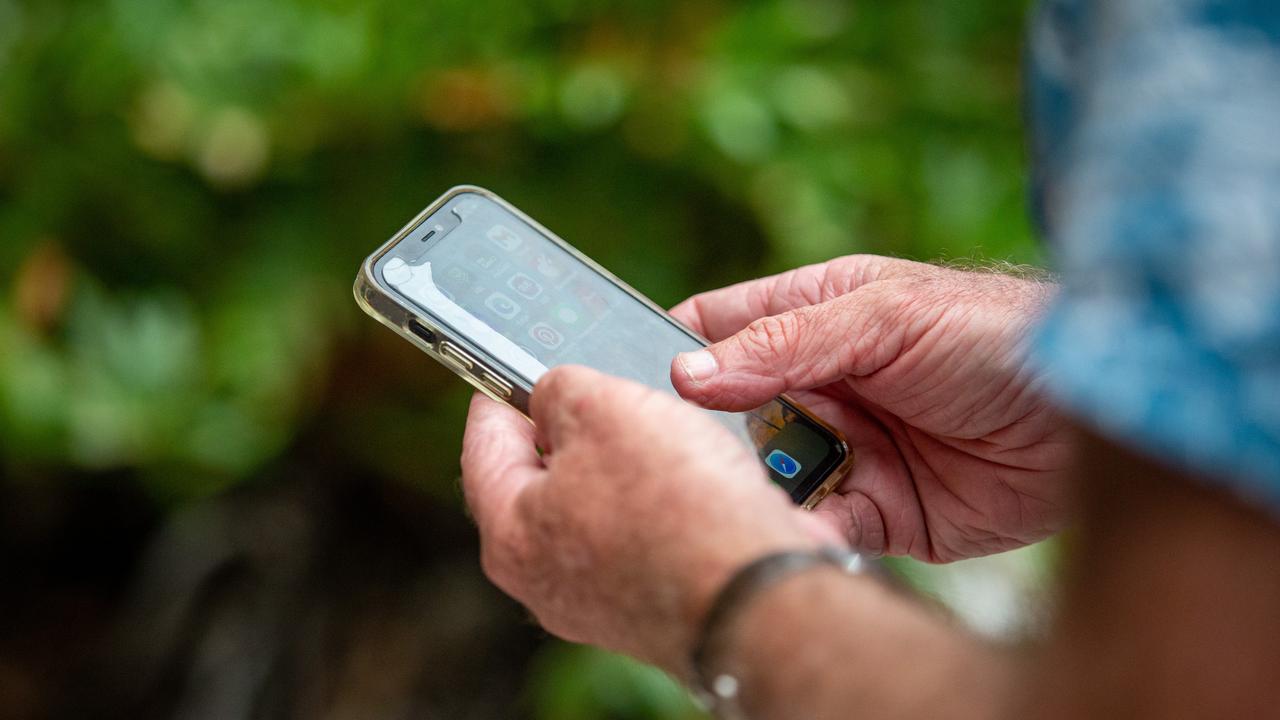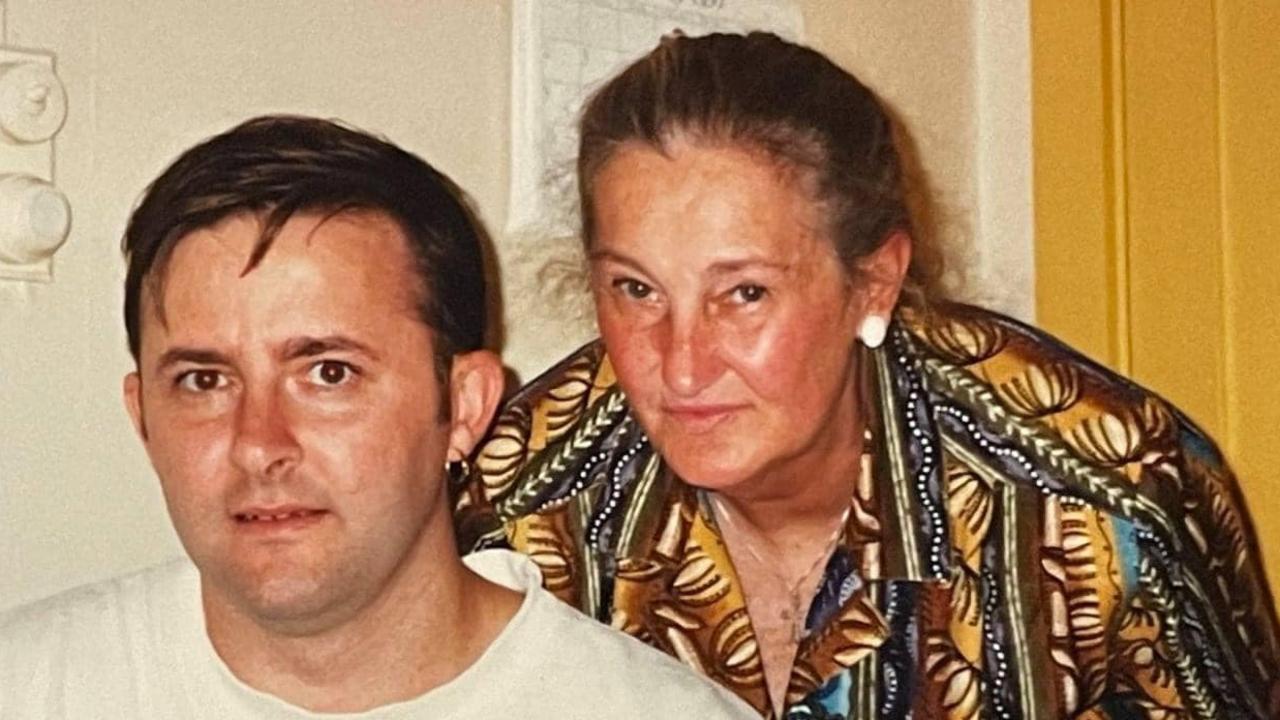Backyard fences in a Melbourne street removed and replaced with tennis nets
The backyard fences of homes in a Melbourne street have been removed and replaced with an unusual alternative.
The backyard fences of homes in an entire street in Melbourne have disappeared.
Late yesterday, a crew of workers snuck into a Hampton neighbourhood in the city’s southeast to remove the barriers between properties.
And they replaced them with tennis nets.
The marketing stunt, carried out by Mastercard to coincide with the Australian Open, was inspired by alarming new research about the state of neighbourly relations.
Tim Sharp from psychology practice The Happiness Institute conducted the study and found that 77 per cent of Aussies never talk to the people next door and know little about them.
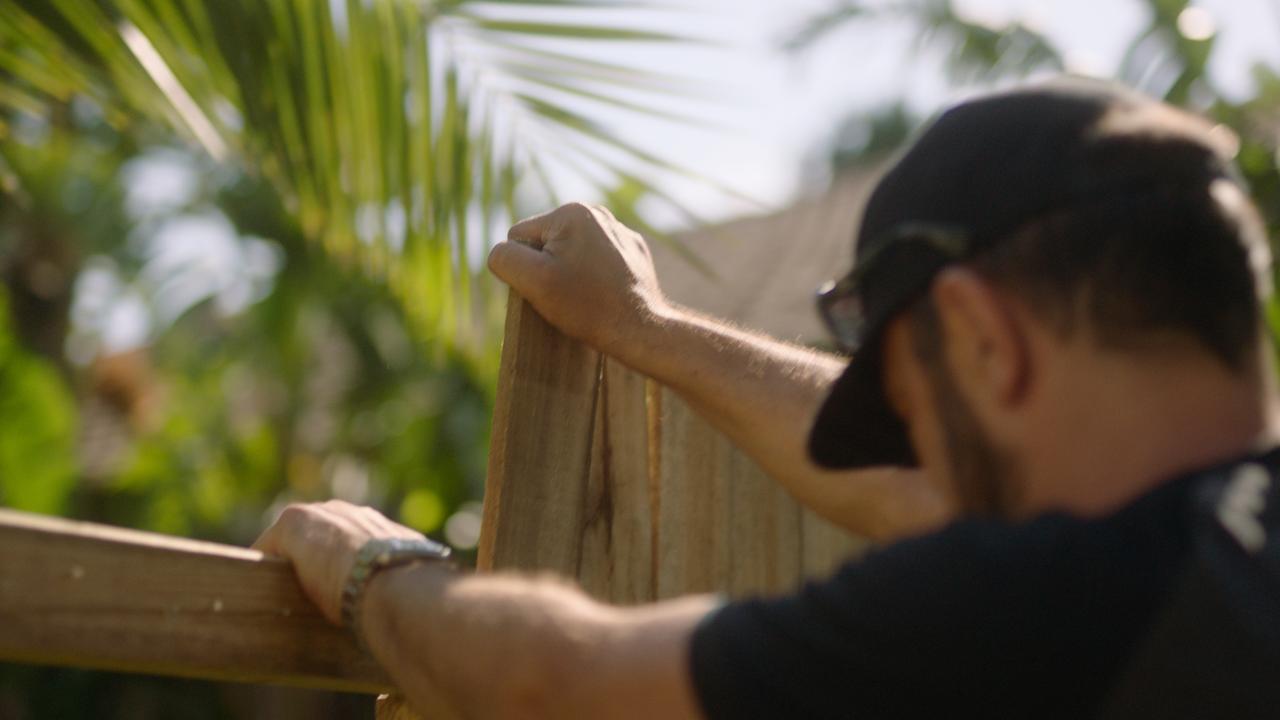
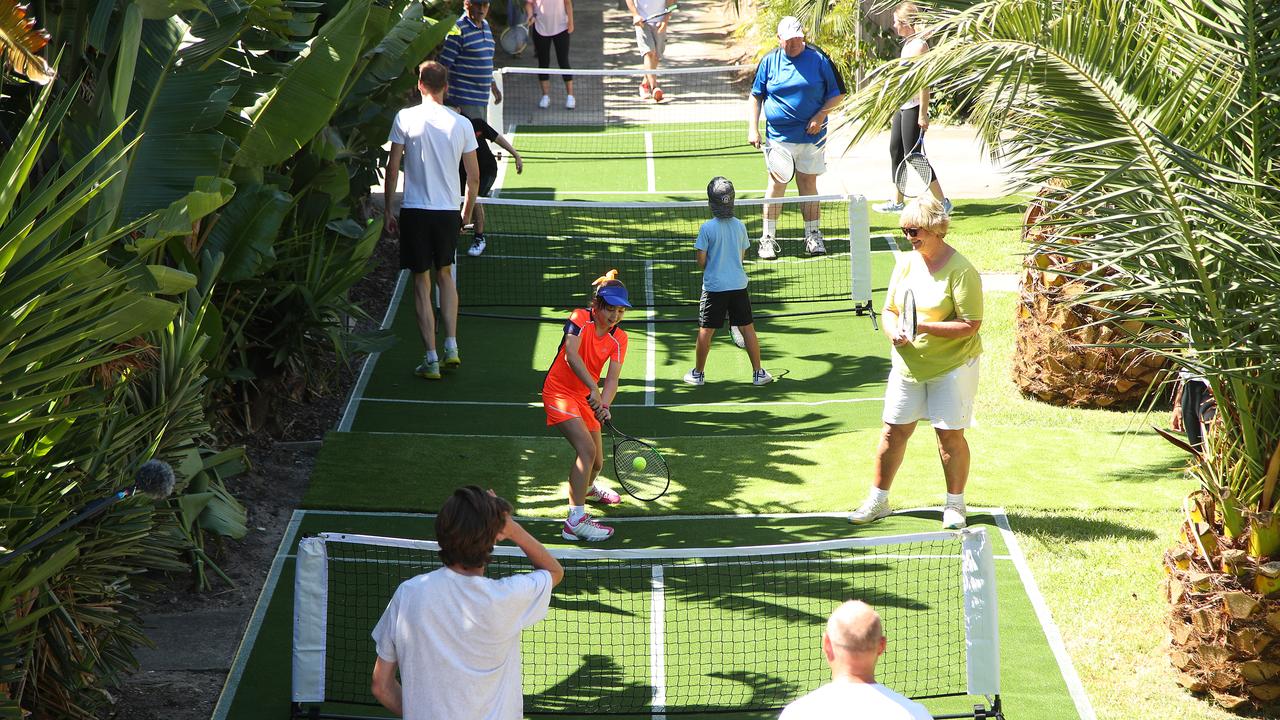
More than half couldn’t tell you their neighbours’ names and 25 per cent wouldn’t recognise their faces if they crossed paths in the local community.
“The findings are concerning,” Dr Sharp said.
“Australians are finding it harder than ever to make meaningful connections with their neighbours, but positively, 90 per cent of us would feel happier if we did.”
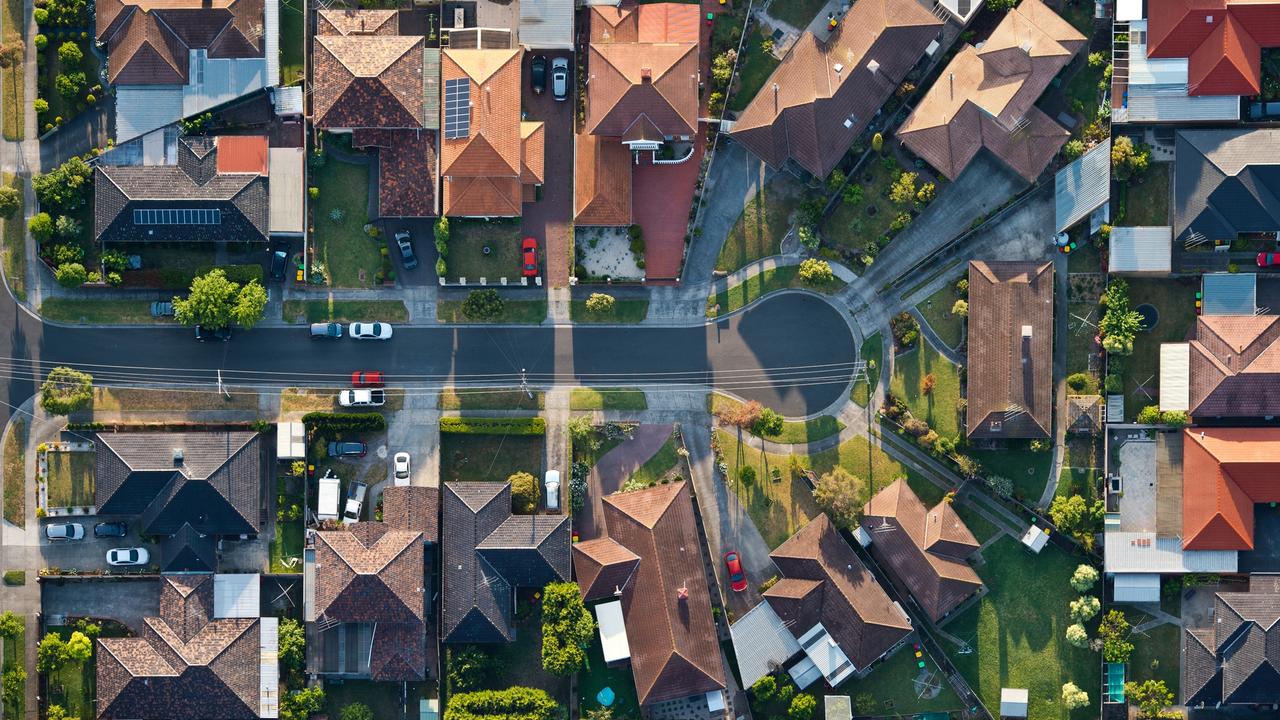
The research found a fear of rejection and anxiety over making the “first move” are holding people back from forming meaningful relationships with those who live around them.
And after leaving it too long to say hello, many people feel too much time has passed to reach out.
Dr Sharp said 56 per cent of people admitted to actively avoiding their neighbours they don’t know well if they encountered them.
“I think many of us take the lazy option and stare at our phones when we cross paths with a neighbour at the local shops or on the way to the bus or train,” he said.
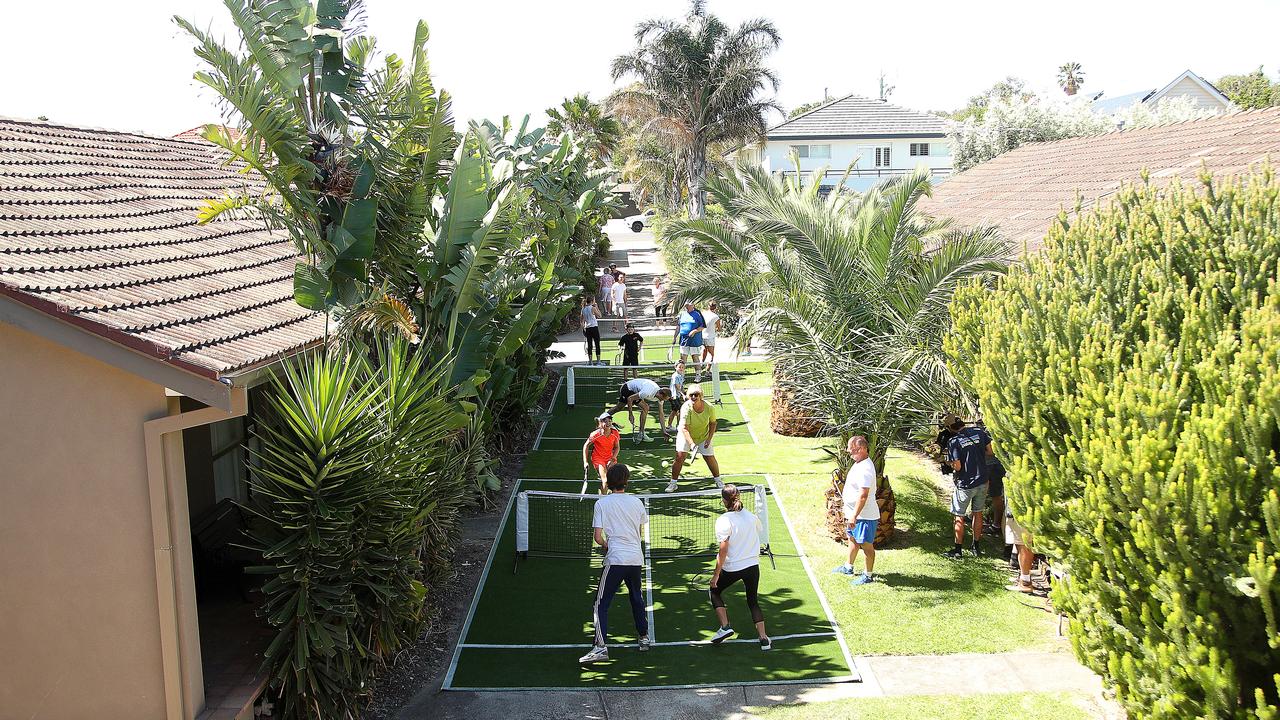
The benefits extend beyond having someone to feed your cat or dog while you’re on holiday, or borrowing a cup of milk when you’ve run dry, Dr Sharp said.
“If I had to sum up all of my years of research, practice, consulting and learning, the most important thing for our health, wellbeing and longevity is one thing — the quality of our relationships, our connectedness.
“If we can improve the quality of our relationships, if we feel like we know the people around us and we can trust and rely on them, feel like we belong, then we’re happier and healthier.”
Mastercard took the findings and ran with them, replacing backyard fences in a street in Hampton with tennis nets to encourage the community to come together over a rally.
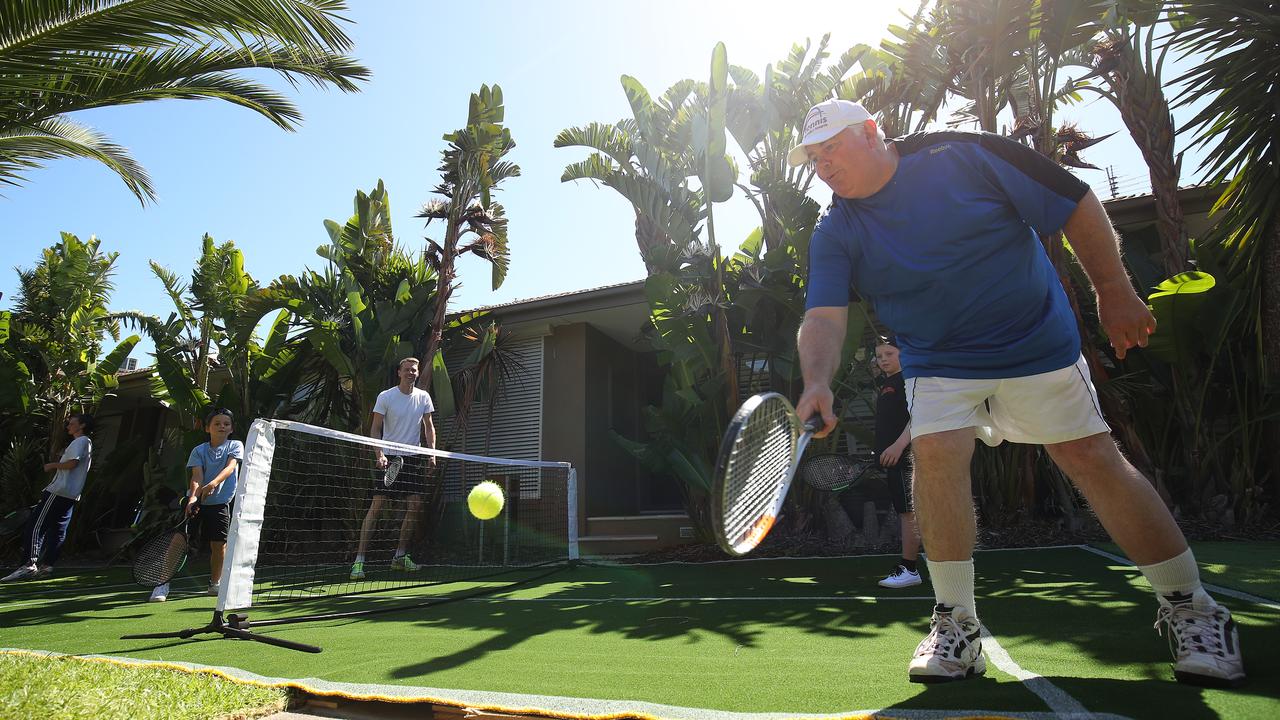
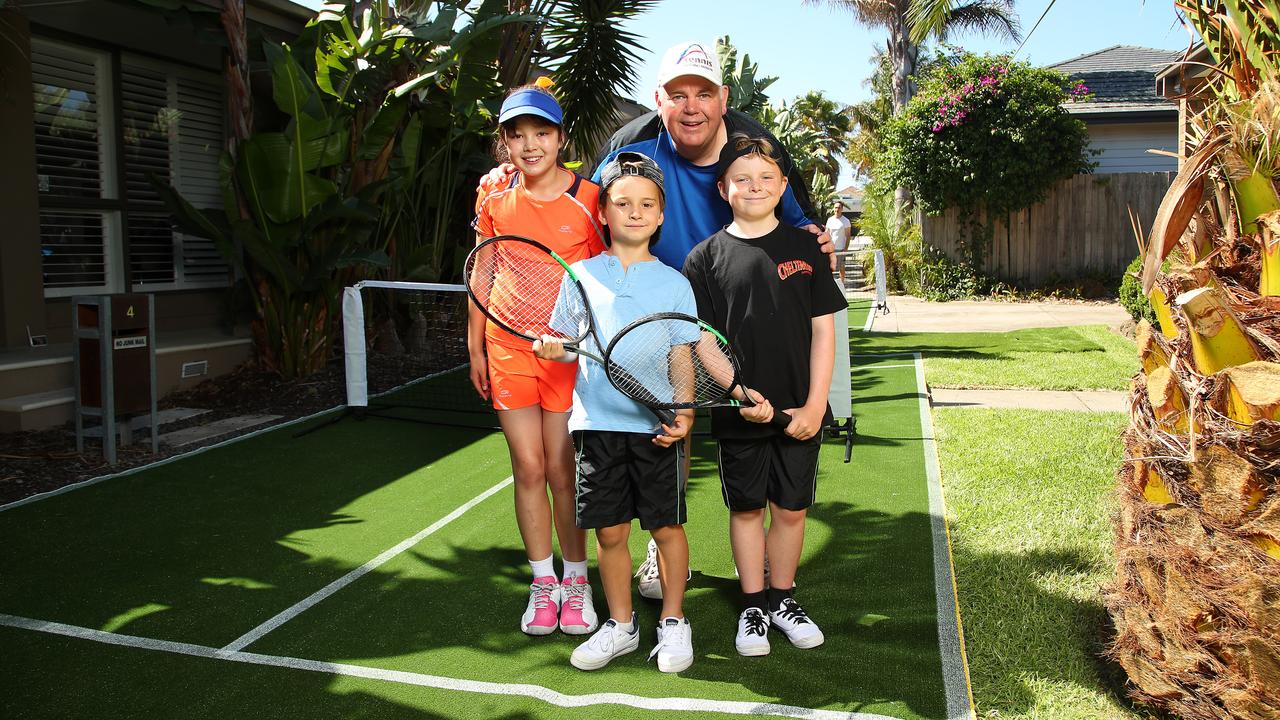
Local Craig James said that he had only ever exchanged a friendly smile with neighbours and knew little about them.
“When we removed the fence and replaced it with a tennis net we got to know each other over a rally — and all of us feel more social and connected,” Mr James said.
“The barriers are down and we are all looking forward to our next game.”
In the 1980s, the average Aussie knew 7.1 people in their local area and felt comfortable asking them for small favours.
By the mid-2000s, that figure had plummeted to five, and is thought to have dropped even more.
Dr Sharp said the research found three per cent of people socialised with neighbours and five per cent would ask their neighbours a favour.

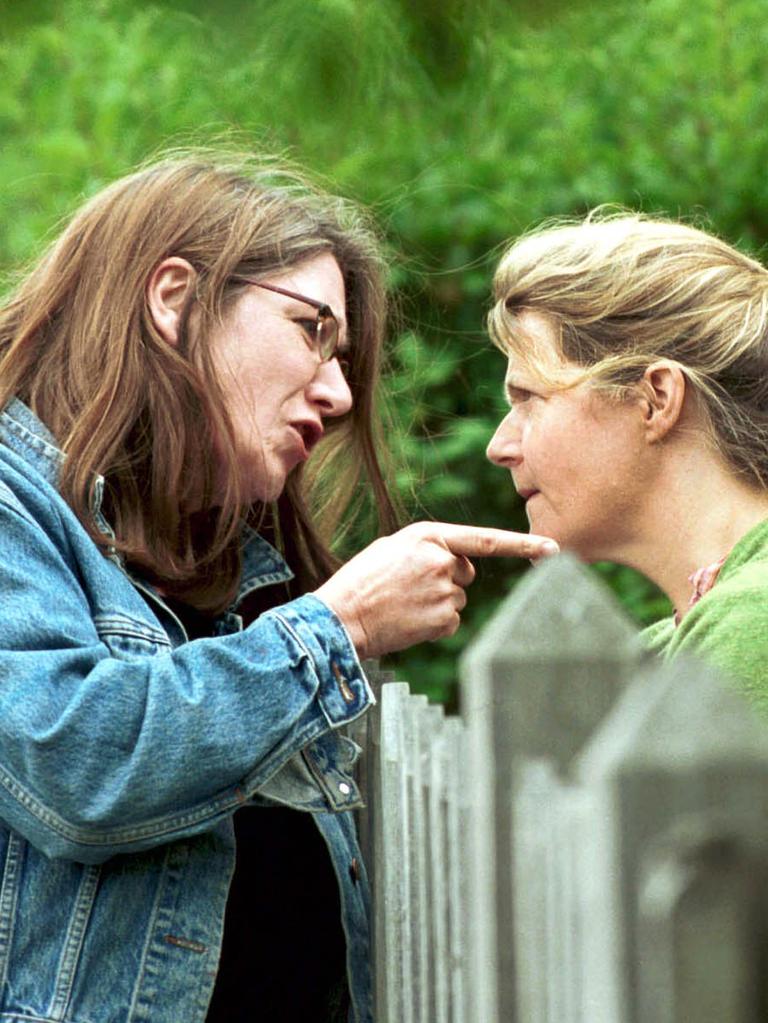
Interestingly, the neighbour relations research found that strangers next door would enjoy a group sport activity if asked to join in.
As well as the obvious physical benefit, Dr Sharp said exercise had “significant psychological benefits — it’s a potent antidepressant and stress buster”.
“An increasing number of studies are finding that the best kind of exercise all up are team sports or group games. There are the physical and psychological benefits, but also social benefits.”


